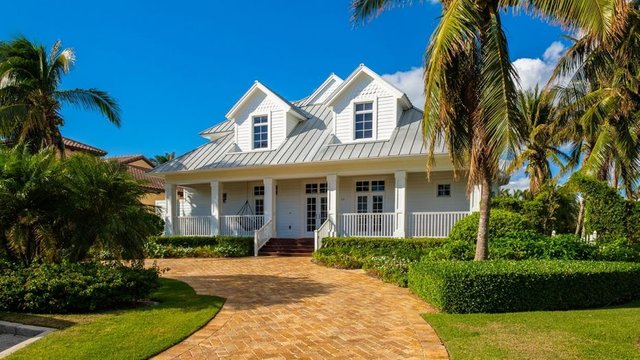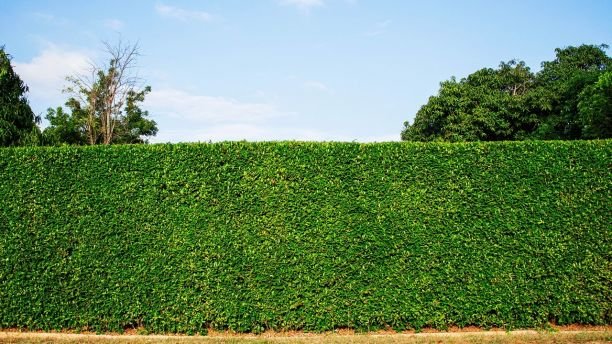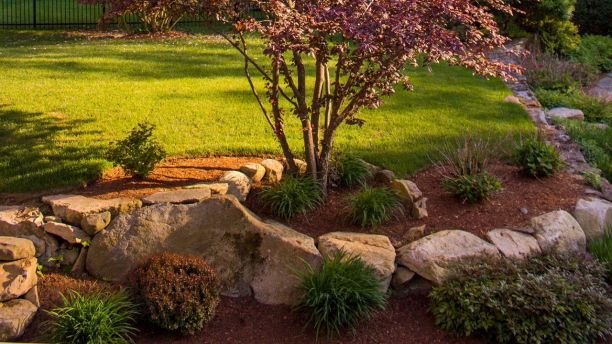Planting around your property? Avoid these 5 common mistakes most homeowners make
 Are palm trees an accident waiting to happen? (iStock)
Are palm trees an accident waiting to happen? (iStock)
Have a home with a yard? Then you might be pining to plant something to make it lush. Only problem is, many homeowners are at sea in big-box garden centers, selecting species that just won't thrive — or even survive — in their yards.
To the rescue, we've asked some green-thumbed experts for the biggest mistakes people make planting (and caring for) trees and shrubs.
Read up on these bloopers to avoid before you dig in.
- Planting palm trees in L.A.
More From Realtor.com
7 Landscaping Trends to Embrace This Summer
6 Yard Landscaping Mistakes That Could Destroy Your Lawn
5 Lawn Care Mistakes That Can Ruin Your Yard
Swaying palm trees channel a vacation vibe, and you'll see them everywhere in Los Angeles, Florida, and other warm-weather areas, but here's a little secret: They aren't native to these areas — and can even be dangerous if you plant them near your home.
"I wish homeowners would not plant this tree," laments Cassy Aoyagi, president of FormLA Landscaping. Many palms, particularly the Washington fan variety, are highly flammable, so when brush fires pass nearby, they can bake these plants from down below and cause them to burst and rain fiery embers underneath.
- Planting hedges
 A wall of hedges: Good for privacy, but quite dull. (iStock)
A wall of hedges: Good for privacy, but quite dull. (iStock)
A plain green wall isn't going to start any conversations, so steer clear of this tired look.
"Ficus hedges are almost as dull as a big expanse of lawn—and their uniformity makes them a weak pick," says Aoyagi.
Barberry shrubs are another choice tree experts wish you'd avoid.
"They're easy to grow and give year-round color, but the thorns they produce make them tough to mow around," explains Chris Lambton, a landscaping expert on "Lawn & Order" and host of "Yard Crashers."
- Planting invasive tree species
We're looking at you, bamboo. This willowy wonder was imported as an ornamental tree, but some species grow incredibly fast, pushing out local plants and harming the biodiversity of an area.
"Many invasive species sap the resilience of neighboring plants and trees, which can speed fire cycles, make mudslides more deadly, and even change the composition of the soil, making it less hospitable for native plants that would otherwise protect us," notes Aoyagi.
- Planting too much, too close together
Don't rush it when it comes to trees, urge the pros.
"Everyone wants immediate perfection, but patience really does pay off," notes Aoyagi. Instead of cramming in a bunch of flowering bushes or young trees in one spot, plant them with space to grow so they'll be stronger and healthier as they mature.
"Planting things too close together looks good for a year or two, but once the trees get bigger, they'll fight for light and nutrients," Lambton says.
The result? A lot of dead leaves and branches — and money down the drain. Instead, save your cash and plant a less ambitious garden.
- Placing rocks near trees
 Make sure your trees get some breathing room. Placing rocks too close "can actually kill your tree," warns landscaper Cassy Aoyagi. (iStock)
Make sure your trees get some breathing room. Placing rocks too close "can actually kill your tree," warns landscaper Cassy Aoyagi. (iStock)
The trend of placing big rocks under trees, especially oaks, is a big pet peeve for landscape professionals.
"This pains me to see because it compresses the earth around the roots and can actually kill your tree," says Aoyagi. A better strategy: Leave leaf litter on the ground, spread mulch, or plant shade-loving natives to decorate the base of your tree.
Hi! I am a robot. I just upvoted you! I found similar content that readers might be interested in:
http://www.wgmd.com/planting-around-your-property-avoid-these-5-common-mistakes-most-homeowners-make/